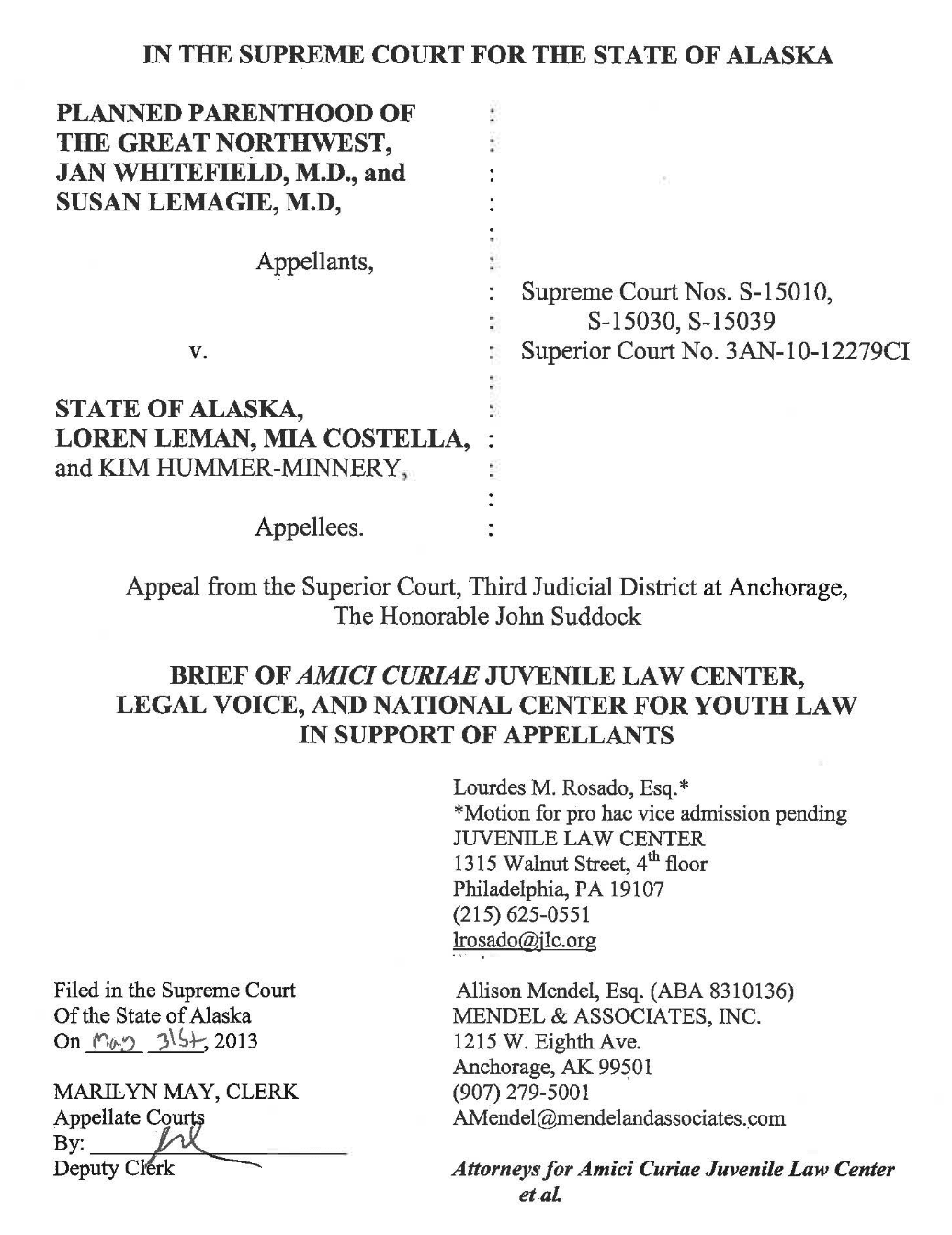
Summary of Argument
Amici curiae respectfully urge this Court to hold that the ParentalNotification Law ("PNL") violates equal protection under the Alaska Constitution, Art. I,§§ land 3. Pregnant minors who choose to abort are similarly situated to those who opt to carry their pregnancies to term. In fact, this Court's precedent establishes that, for purposes o f equal protection analysis, pregnant females who choose to terminate their pregnancies are similarly situated to those who seek all other pregnancy-related care. The PNL - when viewed against the backdrop of Alaska's medical emancipation statutes allowing pregnant minors to obtain all non-abortion health care without parental notification - creates "several potentially significant classes o f similarly situated minors" which "fall within the ambit o f the equal protection question" and thus "deserve careful scrutiny." Application ofAlaska's equal protection test to the PNL demonstrates that the law violates equal protection and thus is unconstitutional.
This Court has already found that the privacy rights ofpregnant teenagers under the Alaskan state constitution, Art. I, § 22, are fundamental in nature, thus satisfying the first prong of the equal protection test." Given that privacy is a fundamental right, Alaska's jurisprudence dictates that the state must prove a compelling state interest for requiring parental notification when minors seek an abortion (prong two), and a compelling interest for imposing the notification requirement on minors who opt to abort while not requiring the same for minors who obtain all other pregnancy-related medical and surgical care (prong three).
An examination of the record below and the reasoning of this Court's precedent demonstrate that the state has failed to establish any compelling reason for the PNL or for discriminating against a class of pregnant minors. The PNL does not advance the asserted state interests of enhancing parental involvement, promoting minors' health, and protecting youth from their own immaturity. Nor do any of these proffered reasons provide sufficient justification for burdening pregnant minors who opt to abort while not imposing the same restrictions on other pregnant minors in the exercise of their fundamental privacy rights. Because "Alaska's equal protection clause does not permit governmental discrimination," minors who opt to terminate their pregnancies "must be granted access to state health care under the same terms as any similarly situated person."
Moreover, the highest courts of New Jersey, California and Florida all have applied strict scrutiny to hold that similar parental notification and/or parental consent laws violated their respective state Constitutions." These state Supreme Courts considered - and rejected - the same arguments asserted in this case, and found that these laws did not further a compelling interest in promoting parental involvement or protecting youth. In striking down a parental notification law, the New Jersey Supreme Court concluded that "the State [does not] offer adequate justification for distinguishing between minors seeking an abortion and minors seeking medical and surgical care relating to their pregnancies" and "there is no principled basis for imposing special burdens only on that class of minors seeking an abortion." The same is true in the instant case.
Amici curiae respectfully submit that this Court should hold that the PNL violates the Alaska Constitution and invalidate it in its entirety.